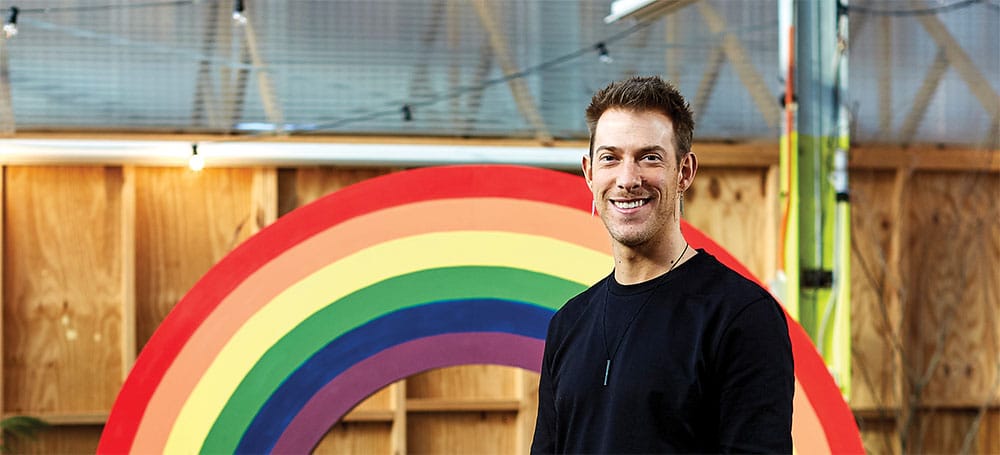
Micah Scott established the Minus18 Foundation, Australia’s national support organisation for lesbian, gay, bisexual, transgender and intersex (LGBTI) youth, in 2011, just after he finished his design and visual communication degree at Monash University. That year he was also a finalist in the Victorian section of Young Australian of the Year.
They’re big achievements for a new graduate, but Scott had arrived at Monash with a commitment to helping others that had been instilled by his Sunday-school teacher mother – a commitment that was nurtured and encouraged through his university years.
Scott’s life as an activist for LGBTI youth began as a 16-year-old schoolboy when he volunteered for Minus18, an organisation established by a group of parents concerned by the lack of activities and safe places for same-sex-attracted young people.
“They ran a few dances a year,” recalls Scott, 29, who registered Minus18 as a charitable foundation and transformed it into its current high-profile incarnation as the peak body in Australia for LGBTI young people.
Today, the Collingwood-based Minus18 Foundation employs 10 people and provides a powerful national voice for LGBTI youth. A broad online support network, it runs school-based workshops as well as a range of social events, and is perhaps best-known for its annual Queer Formal, which has run in Melbourne since 2010, in Adelaide since 2016 and in Sydney from this year.
Named LGBTI Person of the Year in the 2017 GLOBE Community Awards honouring achievement in Victoria’s LGBTI communities, Scott says university life gave him the experience, skills and confidence to take Minus18 to the next level, introducing him to a range of groups and initiatives.
I was associated with people who celebrated their identity, who loved those parts of themselves. I wanted to bring [images that] celebrated that identity.”
While continuing with Minus18, he spent two years as the sexuality officer with the Monash student union and volunteered with the Victorian Government as a youth ambassador.
Meanwhile, his academic design work was not only supporting his volunteer work, but also giving him a new perspective on how to be a more effective activist.
Scott found himself viewing the presentation and promotion of mental health support for LGBTI youth with the critical and analytical design focus he was learning in his Monash course.
“I found the LGBTI ‘industry’ rather linear and set in its ways,” he says. “All the graphic design around LGBTI youth was very ‘problem-focused’. The graphics and the imagery used was young people with their heads in their hands – posters of kids looking like they were sad. It painted them as victims. My own understanding was that I was associated with people who celebrated their identity, who loved those parts of themselves. I wanted to bring [images that] celebrated that identity.”
It was Scott’s final-year design lecturer, Dr Gene Bawden, who gave him the idea that Minus18 could be a career, rather than a volunteer activity.
“At the time, I was thinking I would work in the graphic design industry, start as a low-level designer and work my way up. He said, ‘What are you doing? You could create a career out of this. This is really special!’
“Up until then I had never considered that Minus18 made sense as a career progression pathway from my studies.”





